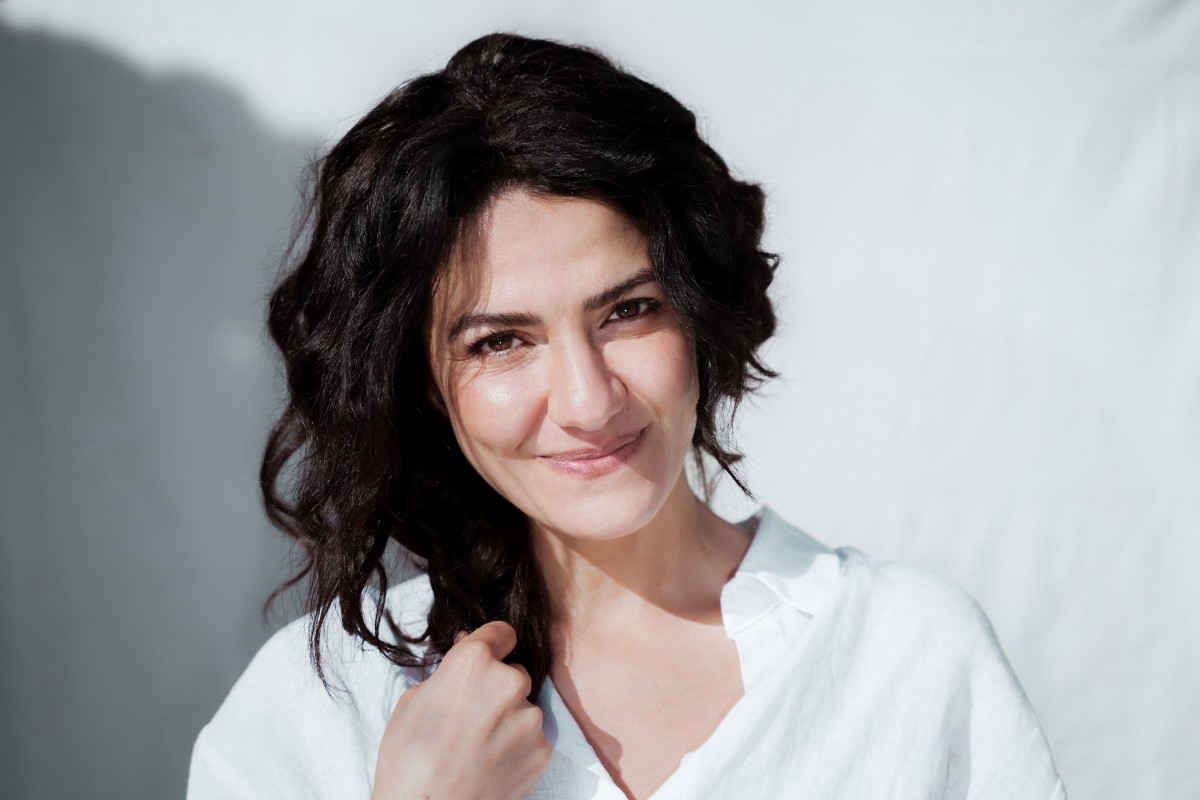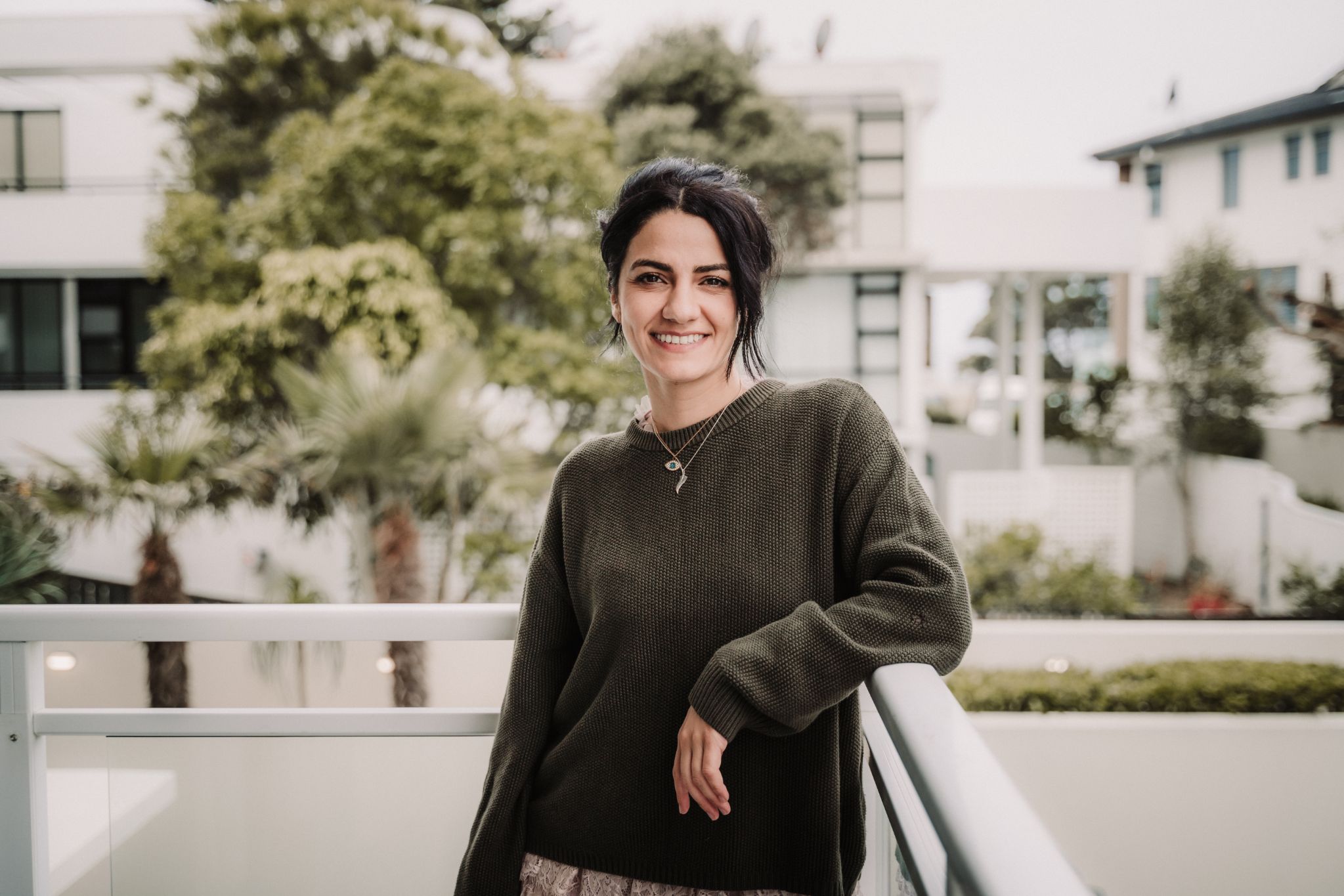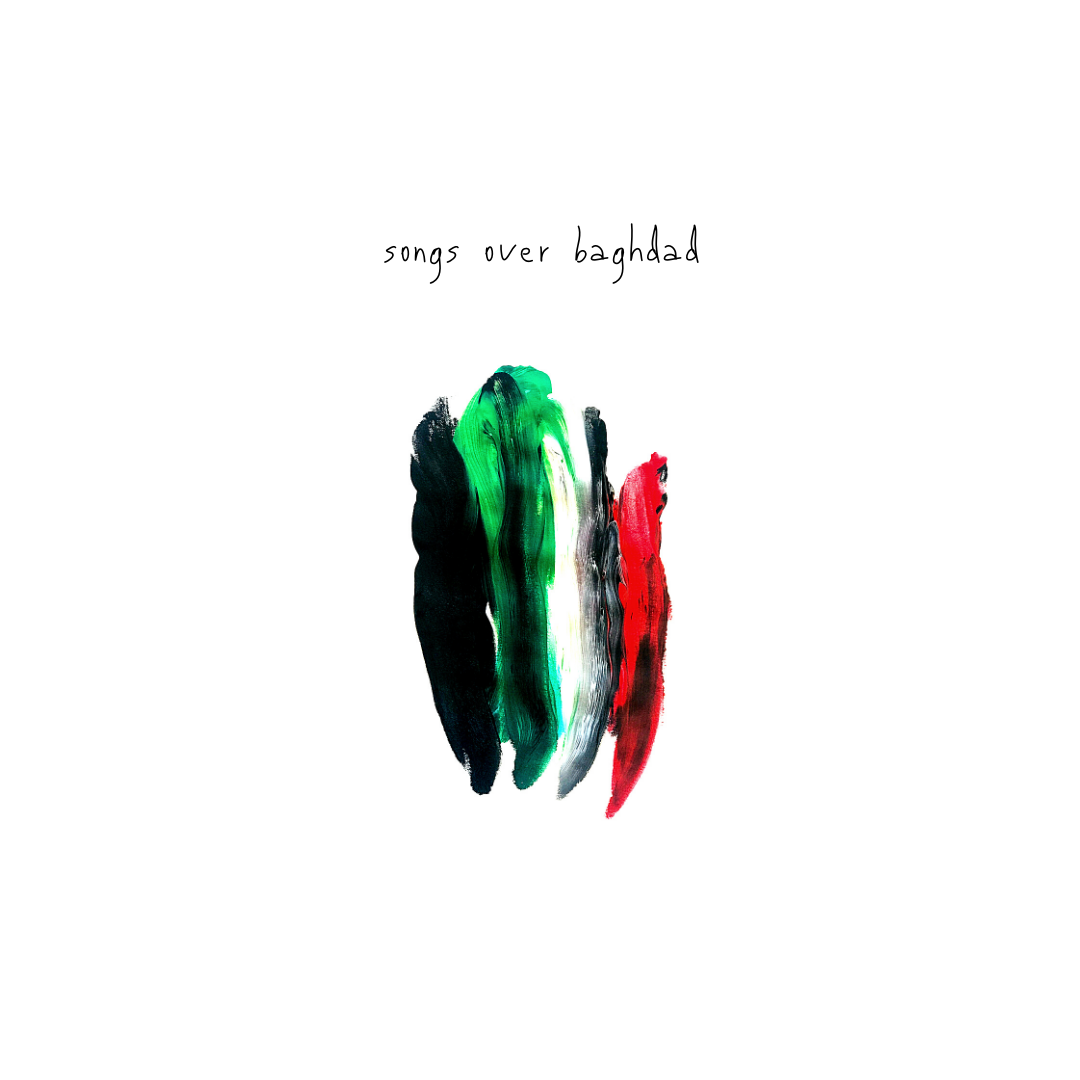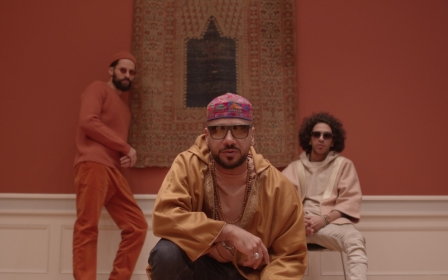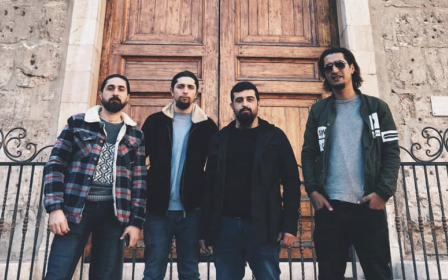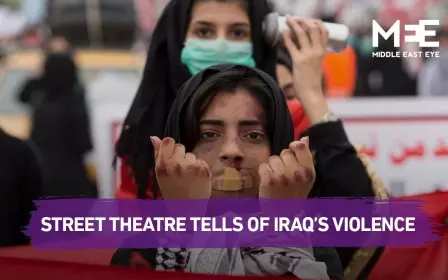Back to Baghdad: How the Iraq uprising inspired singer's ode to home
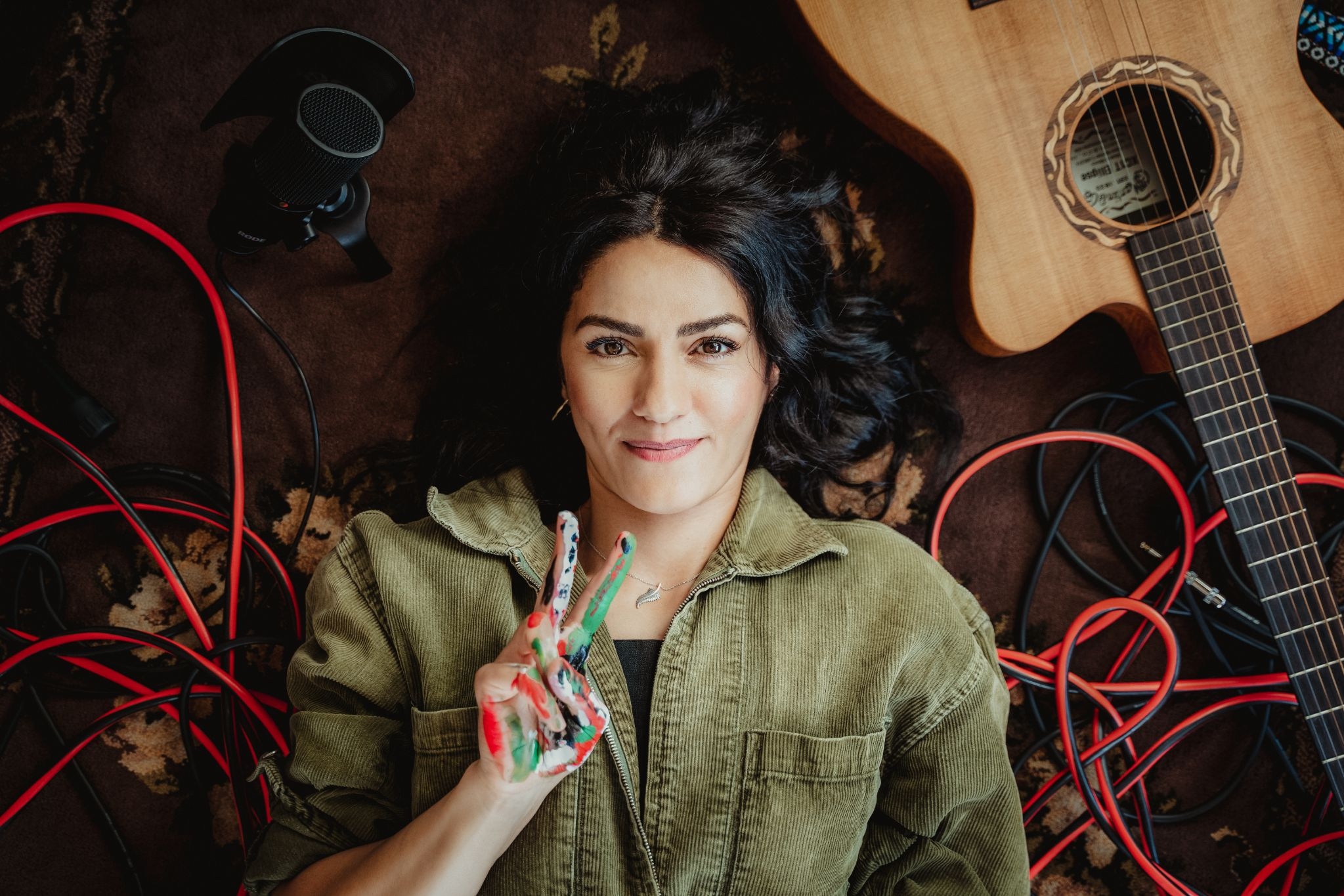
Three months before the start of Iraq’s October protests last year - when thousands of demonstrators took to the streets of Baghdad and the south of the country to demand an end to government corruption - almost 10,000 miles away in Auckland, New Zealand, Yasamin an “artivist” began binge-watching a YouTube political satire show on Iraq.
It would open her eyes to a country she'd lost all touch with. “Connection to Iraq? I honestly thought that I didn't care. I've been outside Iraq 26 years. I was so happy knowing that it exists on the world map… and that's it. That's the only connection I had to it,” she says.
Fast forward to this summer when the singer songwriter's latest release - a track from her new album about Iraq called Songs of Baghdad - had 90,000 views in the first week.
And it was through the weekly Albasheer Show - a take on the US The Daily Show format - hosted by Iraqi comedian Ahmed al-Basheer, and recorded in Amman, Jordan, that Yasamin’s interest in news from her birth country was awoken.
New MEE newsletter: Jerusalem Dispatch
Sign up to get the latest insights and analysis on Israel-Palestine, alongside Turkey Unpacked and other MEE newsletters
Often dressed in mock-military uniform, Basheer uses humour to deconstruct the political events of the week in Iraq, covering issues like politician’s ineptitude and sectarianism, a divisive force in the country’s political landscape.
In the show's pilot episode he tells viewers that Iraqis have tried to “build a democracy”, with “the right to disagree with the government without being water boarded or without having electrodes attached to our testicles - again.”
“I binge watched five years’ worth of episodes,” Yasamin says. “By the end of two months, I was clued up on Iraqi politics, which I had no idea about before.”
She started following him on Twitter and it was through al-Basheer’s social media pages that she first witnessed the October protests. Overwhelmed by the force used to quell the marches, she says: “I was just floored the first three days in October, because of the violence I saw."
“I honestly just cried for three days, I didn't eat. I saw one video that I had to just stop. It was a young man just talking to someone with a rifle. Just saying, I'm not doing anything. And as he's having a conversation, the guy shot him in the head and his head blew open.”
When October ends
Official government figures stated that 149 civilians died during the first wave of protests, mostly as a result of bullet wounds to the head. To date, around 550 people have been killed in the violence with 300,000 thought to be wounded.
At the time, Yasamin, also a part-time scientist, was working on her second album, which centred on themes of her identity as a New Zealander; Iraqi politics was never part of the plan. But she couldn’t let go of what she had seen and the impact it had led her to start writing songs of protest.
Her melancholic vocals on her first song from the album, a haunting ballad called October, is dedicated to all the Iraqis who died during the first month of protests. She titled her most recent album Songs Over Baghdad (a play on hip-hop duo Outkast’s Bombs Over Baghdad), because she wanted “Iraqis to tell Iraq’s story” and “wipe away that violent image of bombs over Baghdad”.
Wake me up when October ends,
I can’t watch you murder these perfect men
When it’s all said
When it’s all done
No real man
Hides behind a gun
“I was blown away by these heroes [Iraqi protestors],” she says. “Their courage, their intelligence, their love for their country. Their selflessness, it's the most inspiring thing I've ever seen… [I wanted to say] we see your bravery, we see what you're trying to do.”
The opening words of the track are in direct reference to American rock band, Green Day’s Wake Me Up When September Ends, a song about losing a loved one – but often adopted in remembering victims of Hurricane Katrina and the 9/11 attacks, both September tragedies.
But it’s also a tribute to the victims of the Christchurch mosque shootings in 2019, when 51 people were massacred by a lone gunman.
Wake me up at the end of March
I can’t watch what happened in Christchurch
Political Pop
Songs Over Baghdad honours both Iraq and New Zealand, and through her songs she says she can share “what it is like to be from both countries and not fully belong to either”.
“I try to sort of make the message local and global because I feel like a local and global person… I’m a New Zealander but I'm also Iraqi and both were unjust murders.”
Compared by some to British soul singer Corrine Bailey Rae, Yasamin says sonically there may be similarities but her music is “definitely a political pop album”.
Tributes to the Iraqi protestors flow throughout her self-produced album, as she tries “to be part of the revolution”.
Her second single, Baghdad Boy, released in July, is an upbeat pop song that includes stories of honour and bravery, through the “violence and killings” the protestors faced.
Baghdad guy
Were you born to die?
This whole damn world let you down
Turned a blind eye
She says it is “a love song, for that peaceful protestor… the new Baghdad Boy.”
The video for the song opens with footage of a young man eating a sandwich, a relatable image chosen with a purpose.
Yasamin wanted to say: “Look at these brave guys who look like us, who laugh and joke around like us, and at the same time, who are trying to peacefully achieve their demands for a better Iraq.”
The man’s name is Omar, an Iraqi YouTuber who documents his daily life during the protests, inspiring the line: "I’ve never seen brave, until I’d seen your face."
Others mentioned in the song include Iraqi twin brothers Hassan and Hussein, both journalists who she sings about when she says: "They fire, you just walk. We don’t run where we come from."
The video, meshed together from YouTube clips, ends by honouring an infamous "Baghdad boy" of last year’s protests. Safaa al-Saray, a prominent activist, died early on in the October protests after being hit on the head with a tear gas canister.
“[Safaa] became an icon of the revolution. His pictures are everywhere in the protests squares and social media… this average Iraqi guy would become the symbol of the whole revolution,” says Yasamin.
Still raining bombs in Babylon
Yasamin, who also describes her music as “pop songs that sound catchy, but are about current political events,” was born in 80s Iraq. Her family left when she was eight years old, first to Jordan and then to New Zealand.
All her life, she says, she was disengaged with much of what was happening in her birth land.
“You think there's nothing in you, and then there is something buried so deep inside you that you didn't know existed… I've never been ashamed to be Iraqi. But it didn’t mean anything to me, it was just a thing. But now I just like feel so proud that I come from the same country as them.”
She only vaguely recalls events that were taking place in Iraq at the time (the 2003 US invasion), while she was studying for her degree in science at the University of Auckland.
'I remember watching the TV screen with my family the night the [US] invasion happened, the Baghdad sky was lit green every time a bomb dropped'
- Yasamin, singer-songrwriter
But she has since revisited that event. “I recently watched a documentary about the invasion… It was brutal. It kind of makes sense to me now why I tuned it all out. I really think I had subconsciously just disassociated from the news.
“I remember watching the TV screen with my family the night the invasion happened, the Baghdad sky was lit green every time a bomb dropped. I wrote about that imagery in my song Babylon ["Still raining bombs in Babylon"]
Now in her 30s, she remembers “being a really happy child” for those few early years in Iraq. Even though one of her earliest memories is of collecting bullet shells from her back garden, she says she was never scared as a child.
“I remember once they were bombings outside, and my mum just was like, ‘oh come play outside, kids’,” Yasamin says.
“I had heard adults talking that if there are bombings you should be outside the house, because if the house falls it will fall on you, but I was never scared…I didn't associate it with violence.”
Music came into her life almost as soon as she arrived in Auckland: “I moved to New Zealand when I was 12 and by the time I was 13 I saw my first music video ever, and it was Hanson’s Mmm-pop. I fell in love. Then I got my first guitar at 13 and strummed it all throughout high school.”
Growing up, she appreciated New Zealand’s own music scene and enjoyed pop and rock bands like The Feelers and Goldenhorse, and Australian artists like Silverchair and Kasey Chambers. Other influences included international artists like John Mayer, Lauryn Hill and Lupe Fiasco. “I listened to everything”, she says.
By the time she’d graduated from the Nelson School of Music in 2017, she found work as a pharmacologist in cancer research, fitting her music and song writing around her full-time job as a scientist. And in that same year, she independently recorded and released her first album London, describing it as a “breakup album”, produced after a relationship ended.
“It was my first effort in music and I am as proud of it as anyone can be of their first album. Writing it helped me find out about who I was on my own, without external validation of a crowd or a person.”
She played to small audiences and released her music independently, telling herself: “I'm gonna try one more album. And if nothing happens, I'm going to sell all my musical instruments and call it a day. That's it.”
'Maybe it’s America'
A year later she had discovered Basheer, Iraq, and new inspiration for her songs.
Songs Over Baghdad, written in just six weeks, has no breakup songs on it, Yasamin insists, but is “about identity and every track is political.” Still, heartbreak is weaved through many of her lyrics.
Paris in the Middle East, a homage to Beirut, is written “as if the city itself is talking about itself”:
They used to call me City of Jasmine,
City of Peace
Let me tell you a story,
there was beauty before the beast
They used to call me Paris, of the Middle East
She says it’s important that the western world sees a Middle East beyond what is being portrayed by the media. “I think every artist who talks about this stuff has a similar goal, which is Middle Eastern people are people too you know, and we're not these angry… angry figures in life.”
But she also understands the importance of accountability, both within Iraq and outside. Her next single (out in October) Maybe it’s America, touches on this.
“America has a lot to answer for when it comes to Iraq,” Yasamin says. “We Iraqis also have a lot to answer for … the divisive language we use about being Christian or Shia or Sunni or Arab or Kurd or Jew or Yazidi.
"We are all Iraqis at the end of the day. This is why the song asks the question: Maybe it’s America and maybe it’s the rest of us.”
For now, Yasamin will continue with science and song, with no plans to quit her day job until she feels she has a “dedicated audience” buying her music and "spreading the word”.
But her music career is already doing well. Yasamin will be the opening act in October for Bic Runga, a chart topping artist with multiple number one hits in New Zealand.
Excited by her growing success at home, Yasamin is now also recognising “being Iraqi” through her music.
The last track on her album, Politics in a Pop Song, closes with a sample from the Egyptian national anthem Beladi (my country), which she says was a popular song in itself before being adopted as the country’s anthem in the 70s.
“To me the word [beladi] sounds both singular and plural, so when I sing it I actually mean ‘my countries’ - both Iraq and New Zealand… it perfectly sums up how I feel about being an Iraqi New Zealander.”
Yasamin’s latest album, Songs Over Baghdad, will be out on Spotify on 19 November
Middle East Eye delivers independent and unrivalled coverage and analysis of the Middle East, North Africa and beyond. To learn more about republishing this content and the associated fees, please fill out this form. More about MEE can be found here.


